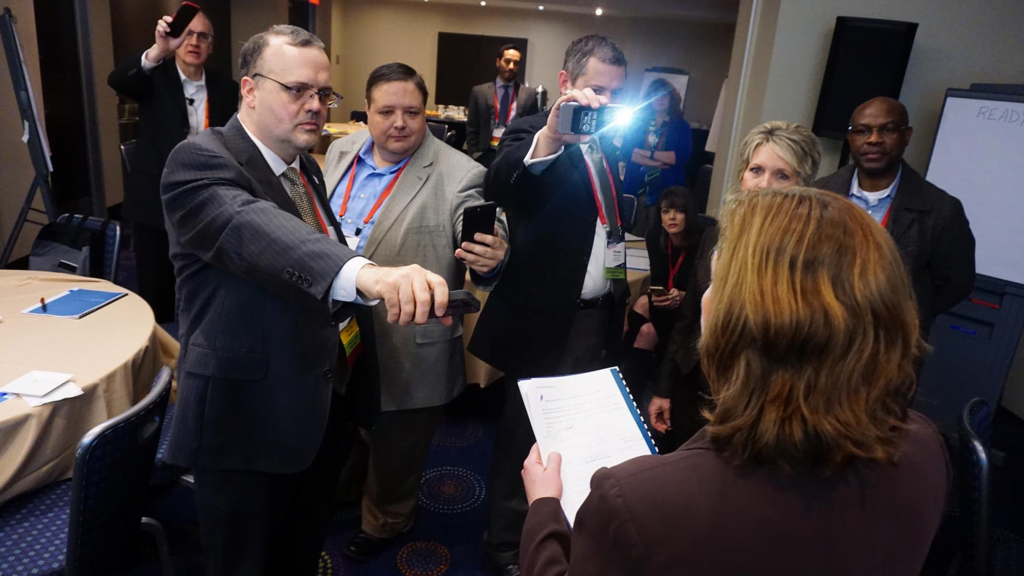Crisis simulation forces county officials to think on their feet


Mark Scott, Randolph County, W.Va., interviews Julie Rodgers of Kalamazoo County, Mich., about a crisis in her fictional county during the crisis communications workshop. Photo by Leon Lawrence III
Bucksnort County was in crisis. A five-car accident had disrupted the small county’s life, with undetermined injuries and a difficult time reaching everyone in the area, thanks to uneven cellular coverage.
While Commissioner Mark Scott addressed questions from the media, he thanked first responders and gave what updates he could, but then came a shout from the back of the press scrum. “Why did you vote against funding road improvements on this stretch, three times?” Scott fell silent.
“I was totally stumped,” Scott said. “How do you respond to that, and change gears in the middle of a press conference? If we don’t role-play those situations, we wouldn’t know how to handle that.” Scott is actually a commissioner in Randolph County, West Virginia, but he was representing fictional Bucksnort County in a crisis communications workshop that grouped county officials together to tackle disaster simulations. Groups were given disaster situations to go along with demographics for their made-up counties. Participants then conducted mock press conferences, with lights and recorders in their faces. Several participants brought their real-life experiences to the workshop, including a representative from a county that faced scrutiny over the removal of Confederate monuments, a supervisor from flooded Mono County, California, and Scott himself dealt with Hurricane Sandy as a city councilman in Elkins, West Virginia.
“We had the national press in our town taking pictures of the damage, they had reporters everywhere,” he said. “This stuff really happens, and the role-playing really helped us prepare for doing it again.”
Those press briefings can escalate, with tempers flaring and people shouting to be heard. For elected officials, who often play a support role to county staff, their most valuable role is often their fundamental function as people’s representative.
“Sometimes the best thing we can do is be there for the public and communicate with them,” Scott said. “But you need to be able to evaluate whether a question is effective or if it’s a gotcha question that will distract from what you’re trying to do as a county.”
In a crisis, communicating the dangers to look out for, the resources to make use of and the ways the public can be of assistance take precedence.
“One of these days soon, it will be a real microphone in my face,” he said. “Elected officials do not realize what weight their words carry. I do now.”
